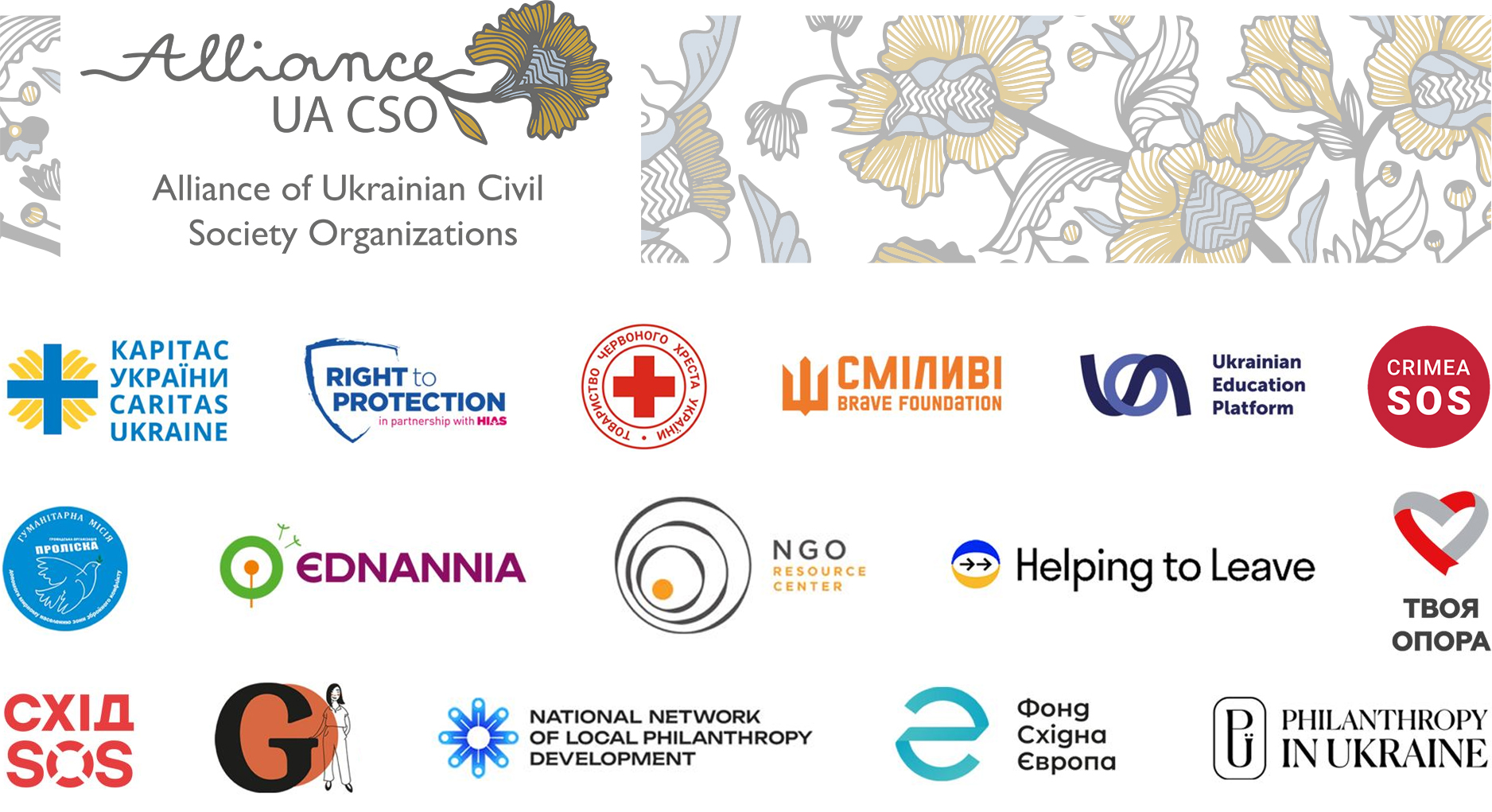
More than 8 years ago, the Grand Bargain was signed at the World Humanitarian Summit. Since then, every time when a large humanitarian effort is launched in a country that needs support, it still feels like the international system starts from scratch with localisation. According to the data from UN FTS, in 20241, three years into the full-scale invasion, Ukrainian CSOs received only 0.07% of funding available for humanitarian response directly. These statistics show a fundamental distrust from international partners in local actors and their ability to effectively respond to humanitarian crises in their home country.
We have strong advocates among international actors who open the way for local actors to be part of decision-making processes. Still, a lot of decisions are made behind closed doors. Instead, we propose deepening the dialogue between all actors at different levels on an equal footing. Grand Bargain should not be an ineffective tool but a platform to strengthen the advocacy for localisation and accountability of the international system. And we should be able to communicate with Grand Bargain signatories openly.
We, the undersigned organizations of the Alliance of Ukrainian CSOs, before the Grand Bargain Annual Meeting once again call on Grand Bargain signatories – donor governments, INGOs and UN agencies to:
- Ensure transparency as to the Grand Bargain implementation, including accurate tracking and public reporting of allocation of funding towards local actors and promoting a clear distinction between direct and indirect funding, in line with the insights from Caucus on funding for localisation.
- Provide practical opportunities for local actors to lead in all areas of humanitarian response, including policy influence, coordination and decision-making. Safeguard that the number of Ukrainian CSOs who take up leadership positions in clusters2, form priorities within the humanitarian planning and play a meaningful role in decision making processes3 ensuring that the future of Ukraine fully reflects a locally-led response.
- Continue working to transform systems and procedures to ensure equity and quality of partnerships. Certain obligations should be prescribed in agreements, policies and procedures by donors, UN agencies and INGOs, including pooled fund mechanisms. For example, sharing overheads and full project documentation, visibility of local partners, ethical recruitment, flexibility in programming. Intermediaries not following the guidelines, policies or procedures related to quality partnerships should not be repeatedly awarded funding.
- Advocate for locally-led pooled funds to accelerate a locally-led humanitarian response and work for the diversification of funding recipients. Research shows that local intermediaries are 32% more cost-effective than international actors4.
- Insist that Grand Bargain signatories prioritize multi-year, flexible funding to sustain both Ukraine’s recovery, and rapid emergency response funding mechanisms led by local and national actors, that reflects the key role of local actors which has been shown time and time again within the Ukrainian context.
We firmly believe that a locally-led response in Ukraine will warrant a more efficient and effective response. It will allow us as humanitarians to move the resources closer to our communities and respond faster.
We, on our side, have taken our responsibilities and openly talk about both our areas for improvement, and success. We are committed to the standards the international humanitarian community have set informed by other humanitarian crises and we ask the Grand Bargain signatories to keep to your commitments for responses that are as local as possible and as international as necessary.
Ukraine is yet another opportunity since 2015 for the Grand Bargain signatories to fully realize their commitments to local leadership of crisis response into implemented practice. We collectively call for your action.
- Data as of March 3, 2024. OCHA UN Financial Tracking Service ↩︎
- 72% of international actors say their position is taken into consideration in coordination forums, like clusters, compared to 52% of local actors who believe it is so. This is especially true for NGOs with a small number of partnerships, only 38% of these NGOs feel heard. ↩︎
- Only 22% of Ukrainian organizations said that they always or mostly have the ability to influence humanitarian policy compared to 43% of international organizations. A Humanitarian Localization Baseline for Ukraine ↩︎
- Passing the Buck: The Economics of Localizing Aid in Ukraine ↩︎
14 Responses